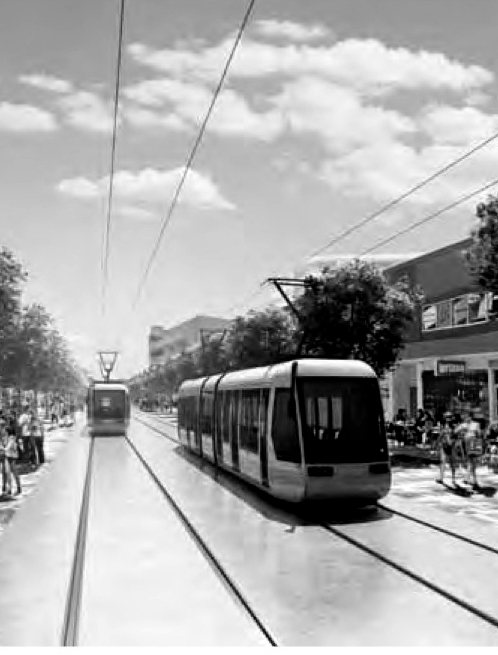Opposition kinks ACT's track to trams
 The ACT Government has put out its long-awaited business case for the 12-kilometre Capital Metro light rail link, but already the Opposition has poked holes and exposed possibly hidden costs in the multi-million dollar project.
The ACT Government has put out its long-awaited business case for the 12-kilometre Capital Metro light rail link, but already the Opposition has poked holes and exposed possibly hidden costs in the multi-million dollar project.
The Government papers say more light rail for Canberra would bring a return of $1.20 for every $1 spent, as well as $1 billion in community benefits.
Contracts for the first stage of the network have been awarded as a public-private partnership, with the link from Gungahlin to the city paving the way for a city-wide network.
But ACT LNP transport spokesperson Alistair Coe said there were millions of dollars in hidden costs left out of the business case.
“There are a lot of costs that aren't part of that partnership,” he said.
“Costs such as staff at the Capital Metro Agency, some of the work on Northbourne Avenue and other projects are not going to be formally part of the agreement, but are all essentially works.
“So the cost of the project could blowout to easily $900 million and who knows, possibly $1 billion.”
He said there were some holes in the reported figures.
In 2012, the Government estimates said the 12km line would cost $614 million, but just six weeks ago the cost figure was revised to $610 million, and now includes a contingency of $173 million.
The modelling in the business case shows the project is very likely to use most of the contingency money.
Mr Coe said the document showed there was high chance the project would actually exceed it.
“It's not really a contingency. It's in fact a high likelihood that the full cost of light rail is going to be very close to $800 million,” he said.
The Capital Metro Board – which conducted the business assessments - is chaired by John Fitzgerald, the head of Infrastructure Australia.
The ACT Government says it is happy with the number presented by the group, which it says is very similar to other such light rail projects elsewhere in Australia.
The Greens are backing the business case, especially the $1.20 benefit return per $1 spent, saying it vindicates the party's position in pushing for the project and favouring public transport in general.







 Print
Print